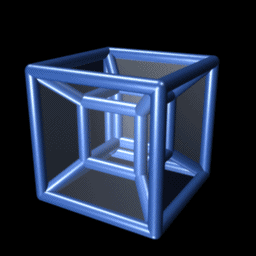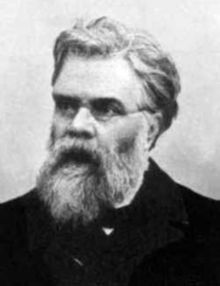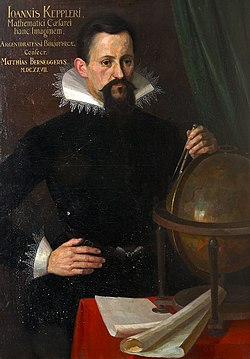Portal:Mathematics
The Mathematics Portal
Mathematics is the study of representing and reasoning about abstract objects (such as numbers, points, spaces, sets, structures, and games). Mathematics is used throughout the world as an essential tool in many fields, including natural science, engineering, medicine, and the social sciences. Applied mathematics, the branch of mathematics concerned with application of mathematical knowledge to other fields, inspires and makes use of new mathematical discoveries and sometimes leads to the development of entirely new mathematical disciplines, such as statistics and game theory. Mathematicians also engage in pure mathematics, or mathematics for its own sake, without having any application in mind. There is no clear line separating pure and applied mathematics, and practical applications for what began as pure mathematics are often discovered. (Full article...)
Featured articles –
Selected image –

Good articles –
Did you know (auto-generated) –

- ... that owner Matthew Benham influenced both Brentford FC in the UK and FC Midtjylland in Denmark to use mathematical modelling to recruit undervalued football players?
- ... that multiple mathematics competitions have made use of Sophie Germain's identity?
- ... that in the aftermath of the American Civil War, the only Black-led organization providing teachers to formerly enslaved people was the African Civilization Society?
- ... that the British National Hospital Service Reserve trained volunteers to carry out first aid in the aftermath of a nuclear or chemical attack?
- ... that Green Day's "Wake Me Up When September Ends" became closely associated with the aftermath of Hurricane Katrina?
- ... that people in Madagascar perform algebra on tree seeds in order to tell the future?
- ... that in 1967 two mathematicians published PhD dissertations independently disproving the same thirteen-year-old conjecture?
- ... that in 1940 Xu Ruiyun became the first Chinese woman to receive a PhD in mathematics?
More did you know –

- ...that the mathematician Grigori Perelman was offered a Fields Medal in 2006, in part for his proof of the Poincaré conjecture, which he declined?
- ...that a regular heptagon is the regular polygon with the fewest sides which is not constructible with a compass and straightedge?
- ...that the regular trigonometric functions and the hyperbolic trigonometric functions can be related without using complex numbers through the Gudermannian function?
- ...that the Catalan numbers solve a number of problems in combinatorics such as the number of ways to completely parenthesize an algebraic expression with n+1 factors?
- ...that a ball can be cut up and reassembled into two balls, each the same size as the original (Banach-Tarski paradox)?
- ...that it is impossible to devise a single formula involving only polynomials and radicals for solving an arbitrary quintic equation?
- ...that Euler found 59 more amicable numbers while for 2000 years, only 3 pairs had been found before him?
Selected article –
 |
| Flowcharts are often used to represent algorithms Image credit: User:Booyabazooka |
An algorithm is a procedure (a finite set of well-defined instructions) for accomplishing some task which, given an initial state, will terminate in a defined end-state. The computational complexity and efficient implementation of the algorithm are important in computing, and this depends on suitable data structures.
Informally, the concept of an algorithm is often illustrated by the example of a recipe, although many algorithms are much more complex; algorithms often have steps that repeat (iterate) or require decisions (such as logic or comparison). Algorithms can be composed to create more complex algorithms.
The concept of an algorithm originated as a means of recording procedures for solving mathematical problems such as finding the common divisor of two numbers or multiplying two numbers. The concept was formalized in 1936 through Alan Turing's Turing machines and Alonzo Church's lambda calculus, which in turn formed the foundation of computer science.
Most algorithms can be directly implemented by computer programs; any other algorithms can at least in theory be simulated by computer programs. In many programming languages, algorithms are implemented as functions or procedures. (Full article...)
| View all selected articles |
Subcategories

Algebra | Arithmetic | Analysis | Complex analysis | Applied mathematics | Calculus | Category theory | Chaos theory | Combinatorics | Dynamical systems | Fractals | Game theory | Geometry | Algebraic geometry | Graph theory | Group theory | Linear algebra | Mathematical logic | Model theory | Multi-dimensional geometry | Number theory | Numerical analysis | Optimization | Order theory | Probability and statistics | Set theory | Statistics | Topology | Algebraic topology | Trigonometry | Linear programming
Mathematics | History of mathematics | Mathematicians | Awards | Education | Literature | Notation | Organizations | Theorems | Proofs | Unsolved problems
Topics in mathematics
| General | Foundations | Number theory | Discrete mathematics |
|---|---|---|---|
| |||
| Algebra | Analysis | Geometry and topology | Applied mathematics |
Index of mathematics articles
| ARTICLE INDEX: | |
| MATHEMATICIANS: |
Related portals
WikiProjects
![]() The Mathematics WikiProject is the center for mathematics-related editing on Wikipedia. Join the discussion on the project's talk page.
The Mathematics WikiProject is the center for mathematics-related editing on Wikipedia. Join the discussion on the project's talk page.
In other Wikimedia projects
The following Wikimedia Foundation sister projects provide more on this subject:
-
Commons
Free media repository -
Wikibooks
Free textbooks and manuals -
Wikidata
Free knowledge base -
Wikinews
Free-content news -
Wikiquote
Collection of quotations -
Wikisource
Free-content library -
Wikiversity
Free learning tools -
Wiktionary
Dictionary and thesaurus
More portals
- ^ Galambos & Woeginger (1995); Brown (1979); Liang (1980).
- ^ Coxeter et al. (1999), p. 30–31; Wenninger (1971), p. 65.




























































